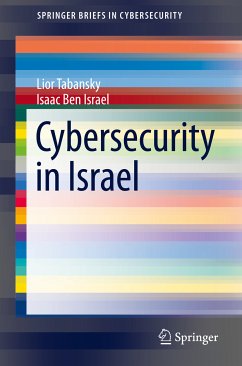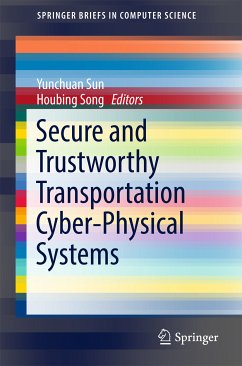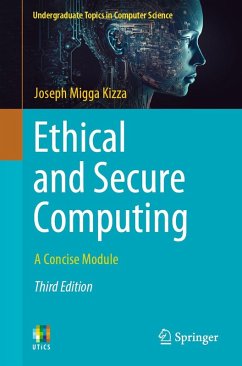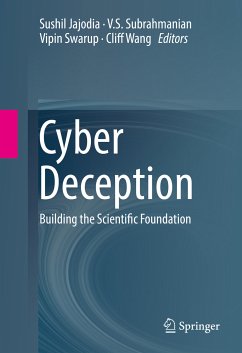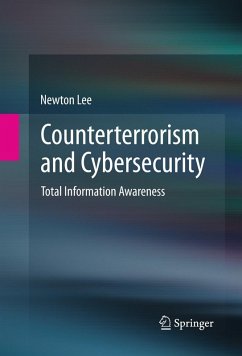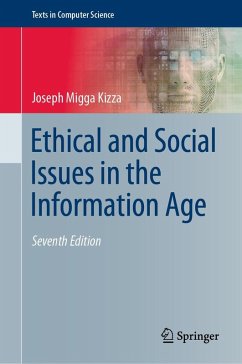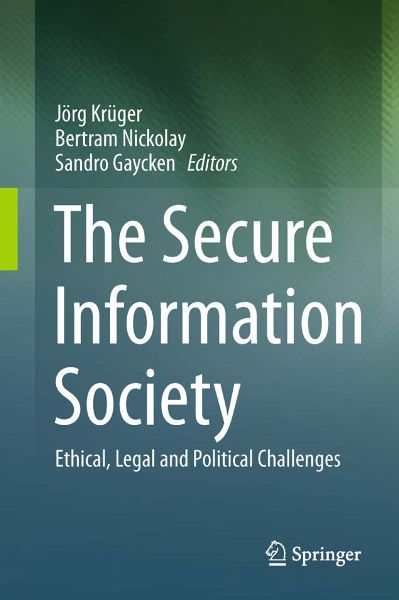
The Secure Information Society (eBook, PDF)
Ethical, Legal and Political Challenges
Redaktion: Krüger, Jörg; Gaycken, Sandro; Nickolay, Bertram
Versandkostenfrei!
Sofort per Download lieferbar
72,95 €
inkl. MwSt.
Weitere Ausgaben:

PAYBACK Punkte
36 °P sammeln!
In our modern information societies, we not only use and welcome computers; we are highly dependent upon them. There is a downside of this kind of progress, however. Computers are not 100% reliable. They are insecure. They are vulnerable to attackers. They can either be attacked directly, to disrupt their services, or they can be abused in clever ways to do the bidding of an attacker as a dysfunctional user.Decision-makers and experts alike always struggle with the amount of interdisciplinary knowledge needed to understand the nuts and bolts of modern information societies and their relation t...
In our modern information societies, we not only use and welcome computers; we are highly dependent upon them. There is a downside of this kind of progress, however. Computers are not 100% reliable. They are insecure. They are vulnerable to attackers. They can either be attacked directly, to disrupt their services, or they can be abused in clever ways to do the bidding of an attacker as a dysfunctional user.
Decision-makers and experts alike always struggle with the amount of interdisciplinary knowledge needed to understand the nuts and bolts of modern information societies and their relation to security, the implications of technological or political progress or the lack thereof. This holds in particular for new challenges to come. These are harder to understand and to categorize; their development is difficult to predict. To mitigate this problem and to enable more foresight, The Secure Information Society provides an interdisciplinary spotlight onto some new and unfolding aspects of the uneasy relationship between information technology and information society, to aid the dialogue not only in its current and ongoing struggle, but to anticipate the future in time and prepare perspectives for the challenges ahead.
Decision-makers and experts alike always struggle with the amount of interdisciplinary knowledge needed to understand the nuts and bolts of modern information societies and their relation to security, the implications of technological or political progress or the lack thereof. This holds in particular for new challenges to come. These are harder to understand and to categorize; their development is difficult to predict. To mitigate this problem and to enable more foresight, The Secure Information Society provides an interdisciplinary spotlight onto some new and unfolding aspects of the uneasy relationship between information technology and information society, to aid the dialogue not only in its current and ongoing struggle, but to anticipate the future in time and prepare perspectives for the challenges ahead.
Dieser Download kann aus rechtlichen Gründen nur mit Rechnungsadresse in A, B, BG, CY, CZ, D, DK, EW, E, FIN, F, GR, HR, H, IRL, I, LT, L, LR, M, NL, PL, P, R, S, SLO, SK ausgeliefert werden.




